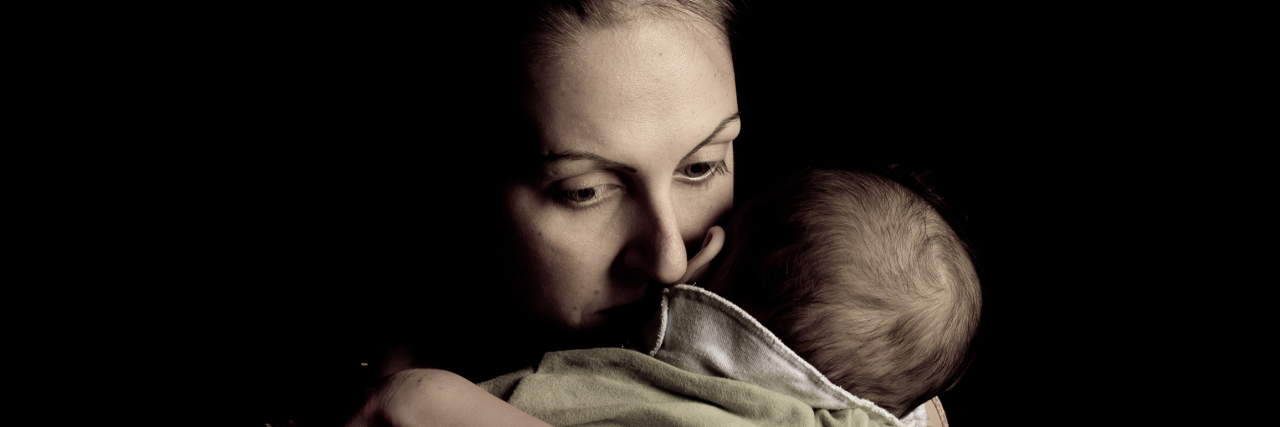Hands down, parenting is the hardest job I’ve ever had in my life. I don’t always know what I’m doing or if I’m saying the right thing. I question my judgment, I question my experience, and I question if other parents are struggling in the ways I am, too. I know I have the theoretical knowledge about how to parent, but when it comes to my own children, my emotions cloud my judgment — so what I should know, I don’t use.
The same probably goes for you too, my fellow parents. When we’re emotionally charged, we can’t see as clearly.
Parenting a child with disabilities comes with the understanding that you will “burn out.” Often. I find that I anticipate events that may trigger a meltdown for my child and I work hard to be ready, to mobilize my energy reserve to hug, hold down or defend. I wake up early to get back packs and shoes out, breakfast ready because low blood sugar can make for a very disorganized and disorganizing morning! By the time I get to my office, I’m exhausted. And you know what? The day hasn’t even really begun. I know I’m not alone in my experience.
Welcome to Holland
In my research about parenting a child with disabilities, I came across this great poem written by Emily King Persley entitled, “Welcome to Holland.” This poem really made sense to me, and it may make sense to you, too. It’s a poem that likens our parenting journey to a much anticipated and vied trip to Italy. Upon arrival, the person realizes they are not in Italy, but rather, has landed in Holland. This traveler becomes angry and does not want to be in Holland — they planned to go to Italy. Once the anger subsides, the traveler begins to realize Holland also has some pretty cool landscape and flowers, and begins to settle in.
When we first learn we are pregnant, we immediately begin to create dreams and fantasies of what our child will look like and what he or she will be like. I remember being two months pregnant with my oldest son, Jake. I loved the name Jake and I really hoped for a son so I could name him Jake. I had no idea of the gender, but as I was observing a child (I was a School Psychologist in a public school at the time), I happened to sit at a desk with the name tag, “Jake.” I remember getting lost in my daydreams. A baby boy with big blue eyes and a twinkly smile. Tall… taller than me (I’m only 4’10”).
Our dreams are powerful and our wishes for how we will parent and how our children will respond are big. We may not even be aware of how large they are, but we enter into parenthood with a framework of how things “should” be because of a fond childhood, or a childhood that wasn’t so fond and therefore resolving to have a different framework by which you raise your child.
This is a big part of parenting a child with disabilities. Embracing that even though this is not what we had anticipated and dreamed about, we are now on a different parenting journey that will be OK, too. Now, it doesn’t come without a great deal of emotions. There is grieving, mourning, sadness, feeling ineffective, feeling guilty, and ultimately accepting that you are now in Holland and people are cool here, too. And know that this cycle can repeat itself again and again. It’s not a one-time thing.
Can parenting a child with disabilities lead to PTSD?
The answer to that question is “yes.” Very much “yes.” Although we traditionally think of post-traumatic stress disorder as something that happens to soldiers returning from war, parents can also face many of the same symptoms, such as re-experiencing a traumatic event, nightmares, insomnia, feeling hypervigilant, feeling hopeless and helpless.
Think about it: you began to suspect that something about your child’s development wasn’t on the right track. You then sat at your computer and began researching. You sought physicians. Then the diagnosis. The diagnosis can be shocking and overwhelming. Parenting a child with a disability also means sometimes facing behaviors from your child that are not safe or you do not know how to manage, having to visit the emergency room more often than you anticipated, not being able to find a preschool that can accommodate your child’s needs. Trying to find an out-of-district school when you begin to realize that your child’s public school just can’t meet your child where they need to be met.
Other stressors
Parents are often then split into the primary caretaker and the primary breadwinner. Someone, whether mom or dad, will give up a job or career that he/she really enjoyed in order to properly care for a child’s needs. And now they have to embrace a different job; one that has no sick time, no vacation time, and no paycheck. Marital stress can sometimes ensue and turn into marital conflict, maybe even divorce.
And if you have another child, there is the stress of trying to find balance between your child without disabilities and the child who needs additional care. Trying to keep everyone’s life “normal.” Trying not to put too much responsibility on your neurotypical child. But, it’s never that easy.
If you’re a parent of a child with disabilities, you know you have a big job. A huge one. You are your child’s advocate and cheerleader. You also work hard to keep your family cohesive and dynamic. Know you’re not alone and your feelings are nothing of which to be ashamed of. In fact, we all feel similar ways on different days. But, you are not alone.
Getty image by Taws13

